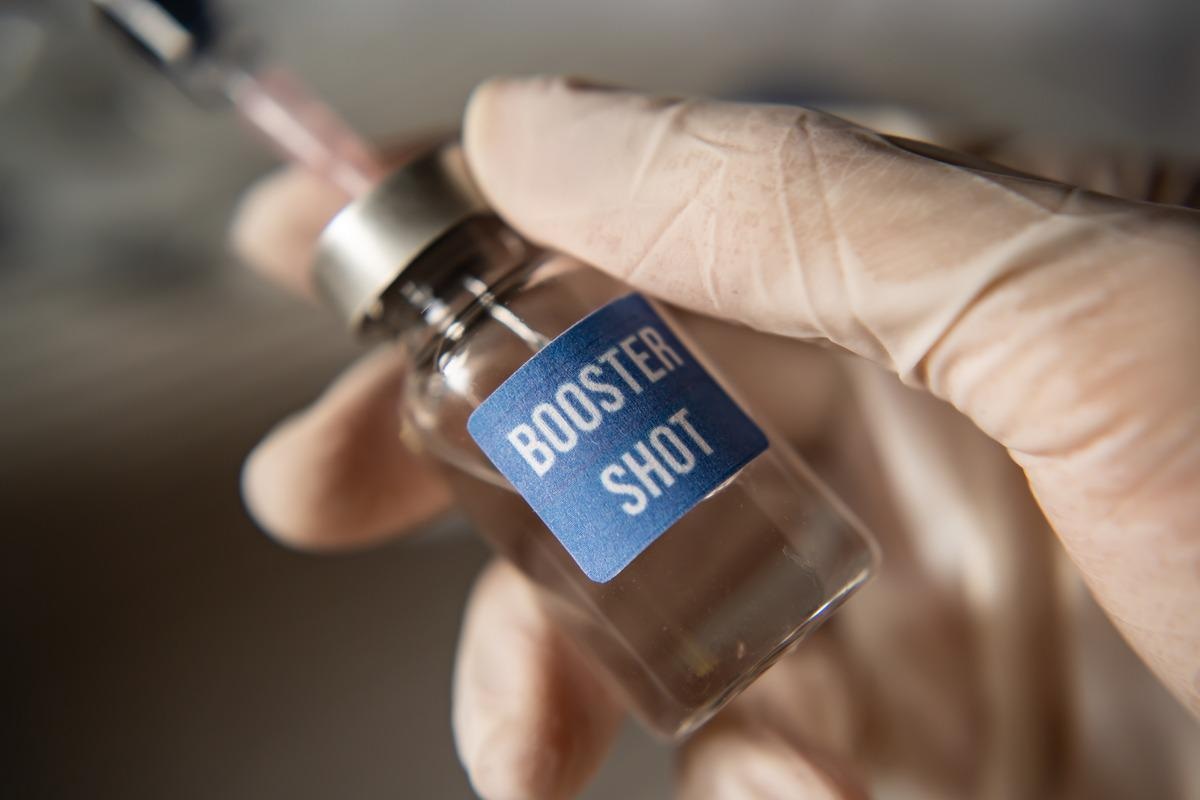In a recent article posted to the medRxiv* preprint server, investigators illustrated that infection with severe acute respiratory syndrome coronavirus 2 (SARS-CoV-2) Omicron infection post-booster vaccination can impart robust, long-lasting immunity against future re-infections.

Background
Studies have reported that SARS-CoV-2 vaccines produce robust antibody- and cellular-mediated immune responses that impart durable protection against severe Coronavirus disease 2019 (COVID-19). Nevertheless, COVID-19 and its vaccination-induced neutralizing antibody levels diminish with time, and antigenic alterations in novel SARS-CoV-2 variants limit antibody-mediated neutralization's efficacy, increasing breakthrough infections, a large percentage of which are mild.
This dynamic has unfolded significantly with the SARS-CoV-2 Omicron (B.1.1.529) mutation, the most recent viral variant to spread across the United States (US) starting in late 2021 and culminating in January 2022, exhibiting the highest daily case rates documented since the pandemic began. According to the Centers for Disease Control and Prevention (CDC), 57.7% of the US population displayed serological proof of natural SARS-CoV-2 infection by late February 2022.
About the study
In the present study, the scientists assessed the antibody response to natural COVID-19 during the SARS-CoV-2 Omicron wave and the antibody response to booster messenger ribonucleic acid (mRNA) vaccine doses. From September 2021 to March 2022, the researchers monitored a fully vaccinated community group encompassing 41 subjects without past SARS-CoV-2 infection diagnoses through the Omicron wave after a booster dose of an mRNA vaccine.
The researchers recruited a group of adults with fully vaccinated status (two doses of SARS-CoV-2 Moderna or Pfizer vaccine), no past clinically confirmed COVID-19 infection, and an interest in receiving a third booster dose in Chicago before the emergence of the Omicron variant. The follow-up phase of the study overlapped with the emergence of the Omicron strain, which was initially identified in the Chicagoland region on December 7, 2021, and swiftly became the dominant variant, with infections diminishing in February 2022. The authors estimated the extent of antibody response to the booster vaccination and the pace of decline with time using blood sampling before and one week after the booster dosing and follow-up sampling for about four months in the peak of the Omicron wave.
Additionally, the team identified immune reactions caused by the SARS-CoV-2 infection rather than the vaccination by quantifying antibodies targeting the SARS-CoV-2 nucleocapsid (N) protein. Further, they assessed prior COVID-19 by detecting anti-N, even if subjects were asymptomatic or did not test positive for SARS-CoV-2 in at-home or clinical testing. As a result, the study calculated the prevalence of COVID-19 following a booster vaccination during the Omicron wave. In addition, the antibody response to booster vaccination with and without successive SARS-CoV-2 infection was examined.
Findings
The study results demonstrated that anti-SARS-CoV-2 spike (S) immunoglobulin G (IgG) concentrations recognizing the Delta, Omicron, and wildtype variants increased 9.2 to 16.2-time one week after the COVID-19 booster dose; yet they dropped over the next four months. While COVID-19 vaccines were significantly efficient at averting severe illness, the present serological findings showed that infections after a booster dose were more prevalent than diagnostic testing suggested. In the current cohort of the recently booster-vaccinated subjects, one out of every five had known COVID-19 infection based on a SARS-CoV-2-positive diagnostic test.
Indeed, 19.5% of subjects reported a known incidence of COVID-19 during the SARS-CoV-2 Omicron wave, which was verified by anti-N IgG. At the same time, another 36.5% developed anti-N IgG after the booster dose, attributed to an asymptomatic, unknown SARS-CoV-2 infection. Thus, 56% of subjects generated anti-N antibodies, confirming COVID-19, by the conclusion of the follow-up timeframe.
At 120 days following the booster vaccination, COVID-19 characterized by anti-N IgG, whether known or unknown to the subject, raised anti-S IgG levels 2.5 to 4.7-fold compared to individuals without serological proof of SARS-CoV-2 infection. In addition, anti-S antibody levels were comparable in the unknown and known SARS-CoV-2-positive cohorts at the end of the follow-up term.
Conclusions
According to the authors, this was the initial study to depict that Omicron infections post-COVID-19 booster vaccination heighten SARS-CoV-2 antibody concentrations beyond what was seen with only a booster vaccination in both unknown and known infection groups.
In the current prospective cohort investigation, the authors documented a high incidence of SARS-CoV-2 Omicron infection after the COVID-19 booster dose, with both unknown and self-reported symptomatic infections centered on anti-N seropositivity among both cohorts. The present study demonstrated Omicron's increased transmissibility and the value of anti-N antibody tests in determining the prevalence of COVID-19.
The authors found that symptomatic COVID-19 was not required for a substantial antibody response among vaccinated/booster-vaccinated people. Moreover, Omicron infection following a booster vaccination might result in better or long-lasting antibody-facilitated immunity towards future SARS-CoV-2 re-infection. Nonetheless, the anti-S IgG response to Omicron was much lower than other SARS-CoV-2 variants, and the pace of decline was rapid, suggesting a poorer level of immunity towards variants of this lineage.
*Important notice
medRxiv publishes preliminary scientific reports that are not peer-reviewed and, therefore, should not be regarded as conclusive, guide clinical practice/health-related behavior, or treated as established information.
- Alexis R. Demonbreun, Amelia Sancilio, Lauren A. Vaught, Nina L. Reiser, Lorenzo Pesce, Eoin P. Sode, Brian Mustanski, Richard T D'Aquila, Elizabeth M McNally, Thomas W McDade. (2022). Antibody responses to known and unknown SARS-CoV-2 infections after mRNA vaccine booster. medRxiv. doi: https://doi.org/10.1101/2022.05.06.22274719 https://www.medrxiv.org/content/10.1101/2022.05.06.22274719v1
Posted in: Medical Science News | Medical Research News | Disease/Infection News
Tags: Antibodies, Antibody, Blood, Clinical Testing, Coronavirus, Coronavirus Disease COVID-19, covid-19, Diagnostic, Efficacy, immunity, Immunoglobulin, Omicron, Pandemic, Protein, Respiratory, Ribonucleic Acid, SARS, SARS-CoV-2, Severe Acute Respiratory, Severe Acute Respiratory Syndrome, Syndrome, Vaccine

Written by
Shanet Susan Alex
Shanet Susan Alex, a medical writer, based in Kerala, India, is a Doctor of Pharmacy graduate from Kerala University of Health Sciences. Her academic background is in clinical pharmacy and research, and she is passionate about medical writing. Shanet has published papers in the International Journal of Medical Science and Current Research (IJMSCR), the International Journal of Pharmacy (IJP), and the International Journal of Medical Science and Applied Research (IJMSAR). Apart from work, she enjoys listening to music and watching movies.
Source: Read Full Article